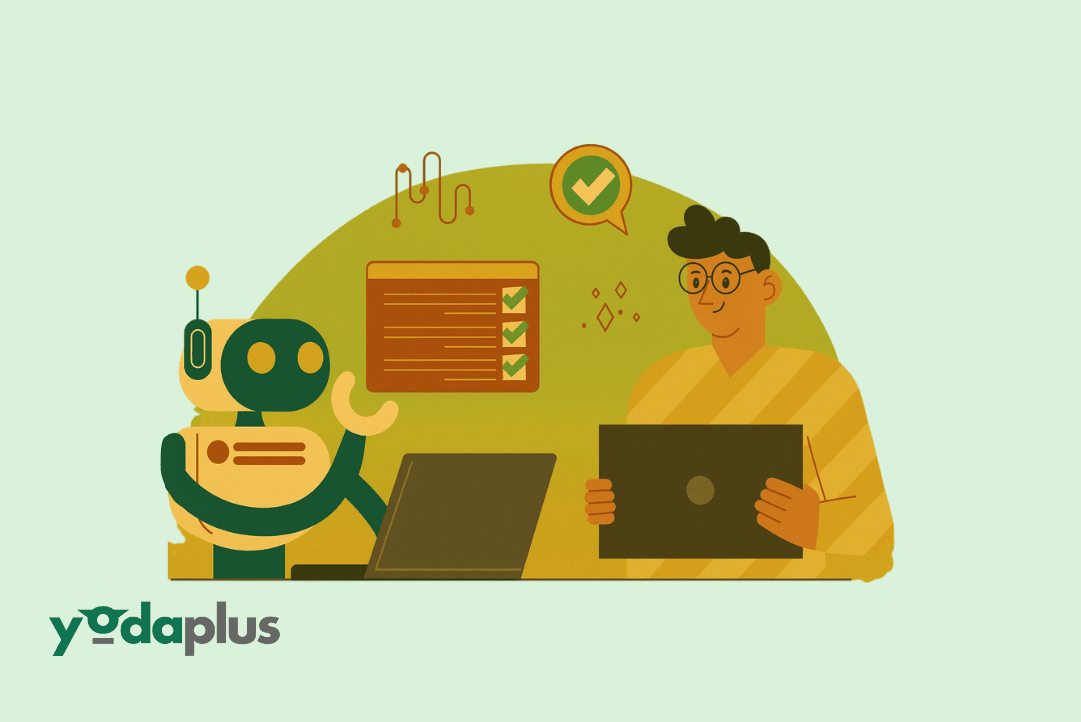
Gen AI and Calendar-Aware Agents: Using Time as Context
September 5, 2025 By Yodaplus
Artificial Intelligence is moving into a new phase where time is no longer an afterthought. Instead, calendar-aware agents, Gen AI, and agentic AI solutions are being designed to treat time as a first-class context. This means that agents can understand when something happened, how long it lasted, and how it connects with future events. By doing so, these AI systems become more useful in real-world tasks like scheduling, planning, and forecasting.
Why Time Matters for AI Agents
Traditional AI models focus on data inputs without much awareness of time. They can recognize patterns, generate insights, or run predictions, but they often miss the sequence of events that makes context meaningful. For example, a recommendation system may suggest a meeting tool without knowing that the user is about to attend an event in the next hour.
This is where calendar-aware agents powered by generative AI software come in. They look at both data and timing. Instead of just understanding what needs to be done, they also recognize when it should be done. This makes them far more effective in tasks that depend on timing, such as AI in logistics, project management, or financial forecasting.
Agentic AI and Time as a First-Class Context
Agentic AI platforms are built to handle more than just raw data. They combine memory, reasoning, and planning into workflows that reflect human decision-making. By embedding time awareness, these autonomous AI systems can reason across sessions and track events over weeks or even months.
For example, a workflow agent can monitor market data, align it with calendar events like earnings announcements, and deliver insights to analysts. Similarly, an ai agent in supply chain management can connect delivery schedules with warehouse updates and alert teams to risks before they become problems.
How Gen AI Tools Enhance Time-Aware Workflows
Gen AI tools bring flexibility to agentic AI use cases. Instead of relying on fixed rules, they adapt to changing timelines. A good example is in AI-driven analytics, where reports can be generated based not only on available data but also on when decisions are due.
By combining semantic search with vector embeddings, knowledge-based systems can help agents remember what happened in the past and adjust future actions. For instance, a multi-agent system could coordinate project deadlines, vacation calendars, and vendor availability to recommend the best time for critical work.
The Role of MCP and AI Frameworks
Modern ai frameworks like MCP are enabling time-aware reasoning at scale. MCP gives agents a structure to share memory, pass roles, and align with goals over long sessions. In practice, this means that intelligent agents can keep track of past commitments and adjust their actions without starting from scratch.
For businesses, this adds reliability. A reliable AI system that understands time reduces errors, avoids missed deadlines, and improves collaboration across teams. Whether applied in AI in logistics, supply chain planning, or financial reporting, the benefits are clear.
Business Applications of Calendar-Aware Agents
Time-sensitive reasoning has wide applications in Artificial Intelligence in business. Some examples include:
-
AI in supply chain optimization: Predict delivery delays by combining IoT data with shipping calendars.
-
AI-powered automation: Run workflows that trigger at specific times, such as compliance checks before audits.
-
Conversational AI: Offer real-time reminders linked to user calendars for better productivity.
-
AI risk management: Monitor upcoming deadlines for regulatory filings and flag risks early.
-
AI in logistics: Match fleet schedules with demand cycles to reduce costs.
These use cases show that agentic AI solutions are not only smarter but also more practical when they understand time.
Future of AI with Calendar-Aware Agents
The future of AI will involve more than just accuracy. It will also be about context. By adding time as a primary factor, autonomous agents become trusted assistants that align better with human needs. From explainable AI for transparent planning to self-supervised learning for improved memory, the innovation is only beginning.
As organizations adopt artificial intelligence solutions, they will look for gen AI use cases that deliver both insights and timing. The ability to reason across sessions, track long-term goals, and adapt to shifting timelines will set apart the next generation of agentic AI tools.
Conclusion
Calendar-aware agents mark a step forward in AI technology. Businesses can unlock a new level of intelligence by combining the power of generative AI, agentic frameworks, and AI-powered automation. With Artificial Intelligence solutions by Yodaplus, organizations gain tools that not only answer “what” questions but also “when.” These agents help businesses plan better, respond faster, and innovate with confidence.